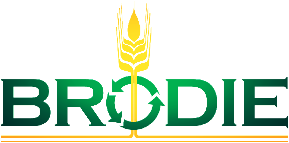A total of $16.5 million, including in-kind contributions, will be invested by Agriculture and Agri-Food Canada, Dairy Farmers of Canada (DFC), Lactanet Canada, Novalait and several other sector partners in this third dairy cluster. About 1,300 individual dairy farms and 10 dairy processors will be investing their time in the proposed research activities by collaborating with the research teams. A summary of each research project is now online at Dairyresearch.ca.
In the coming months, we will feature the new research projects, in addition to other dairy research news and updates, in our blog at Dairyresearchblog.ca. Sign up to the blog to receive the latest news by email monthly.
New research: Optimizing health and production of cows milked in robotic systems
New research launched in 2018 is investigating ways to maximize efficiency of robotic milking systems and optimize cow health within those systems. The project, led by Dr. Trevor DeVries of the University of Guelph, is very timely – about 11% of farms enrolled in a milk recording program in Canada use robots, and the adoption of this technology continues to increase.
“Considering the number of farms using robotic technology and the potential for growth, there are still gaps in our knowledge on the best strategies farmers can use to address some of the challenges we identified in the Dairy Research Cluster 2 research. This new research will build on those results,” DeVries says.
The researchers will identify cow- and herd-level factors that influence milk production, cow health and the efficiency of robot use in a large-scale sample of dairy farms. The information will be used to identify best management practices to help farmers using robotic systems produce milk more efficiently and maintain excellent dairy cow health, with a specific focus on health in early lactation and feeding practices in robotic barns, based on barn design and layout, for all stages of lactation.
This is the first unbiased study of its kind to investigate robotic milking technologies on farms across all provinces, using data collected in collaboration with Lactanet. The research team includes the following top Canadian experts in the fields of dairy cattle health, farm management and nutrition: Drs. Greg Penner and Tim Mutsvangwa, University of Saskatchewan; Drs. Karin Orsel and Ed Pajor, University of Calgary; Dr. Todd Duffield, University of Guelph; and Richard Cantin, Débora Santschi and René Lacroix, Lactanet.
Over a 12-month period, researchers will collect data on housing, feeding and management by farm and by robotic system, and will extract milk recording data for each herd. The data will be analyzed to assess cow- and herd-level impacts on milk production, health and robot use.
“The extent of the dataset collected by farm and by region will allow us to assess robotic system performance. We will then be able to make some associations or differentiations, and develop benchmarks dairy farmers can use if they are already milking with robots or are thinking about installing the technology on their farm. We look forward to developing some very practical independent information for Canadian dairy farmers that is science-based and supports their application of the technology in the most efficient way,” DeVries concludes.
For more information on the project, access the project summary online at Dairy research. ![]()
Canadian Dairy Research: For a profitable, innovative and sustainable sector
Dairy Farmers of Canada (DFC) invests in research to stimulate productivity, sustainability and profitability on farms and to improve knowledge on milk and dairy products’ health benefits. DFC finances research initiatives that benefit all dairy farmers across Canada and works in collaboration with its members and other sectorial partners to address farmers’ priorities set in the dairy research and knowledge translation, and transfer national strategies. Visit Dairy research for more information.










